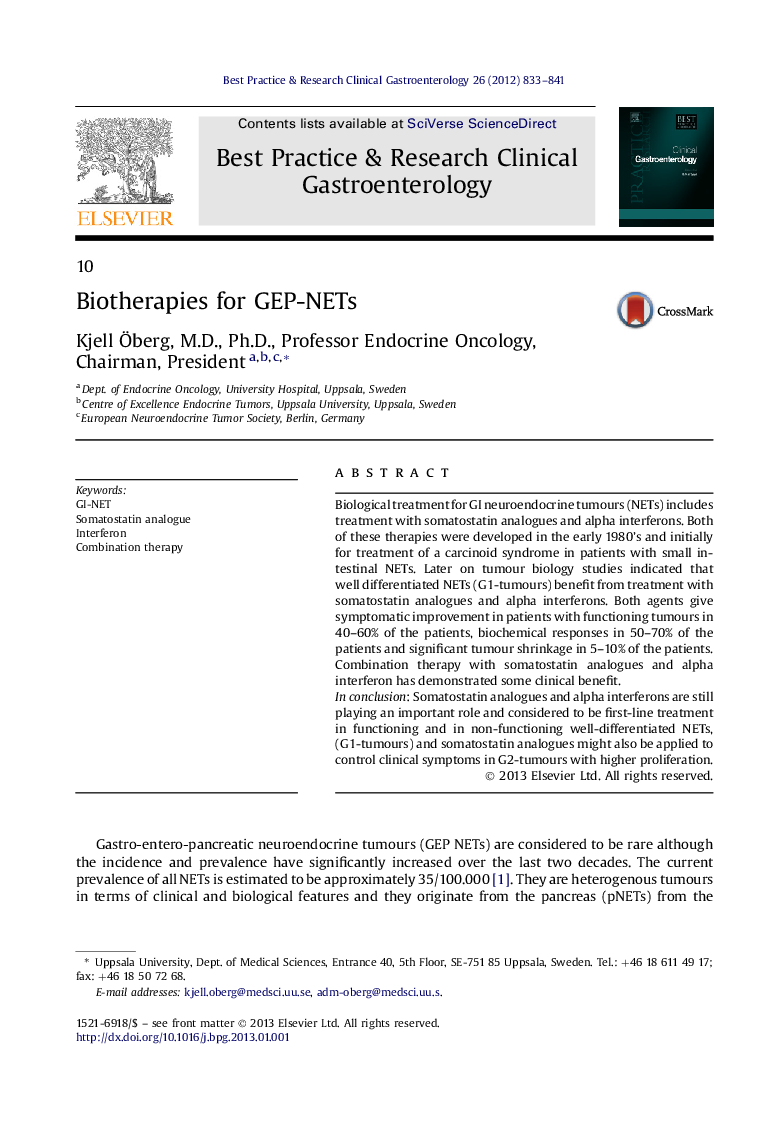| Article ID | Journal | Published Year | Pages | File Type |
|---|---|---|---|---|
| 6086391 | Best Practice & Research Clinical Gastroenterology | 2012 | 9 Pages |
Biological treatment for GI neuroendocrine tumours (NETs) includes treatment with somatostatin analogues and alpha interferons. Both of these therapies were developed in the early 1980's and initially for treatment of a carcinoid syndrome in patients with small intestinal NETs. Later on tumour biology studies indicated that well differentiated NETs (G1-tumours) benefit from treatment with somatostatin analogues and alpha interferons. Both agents give symptomatic improvement in patients with functioning tumours in 40-60% of the patients, biochemical responses in 50-70% of the patients and significant tumour shrinkage in 5-10% of the patients. Combination therapy with somatostatin analogues and alpha interferon has demonstrated some clinical benefit.In conclusion: Somatostatin analogues and alpha interferons are still playing an important role and considered to be first-line treatment in functioning and in non-functioning well-differentiated NETs, (G1-tumours) and somatostatin analogues might also be applied to control clinical symptoms in G2-tumours with higher proliferation.
